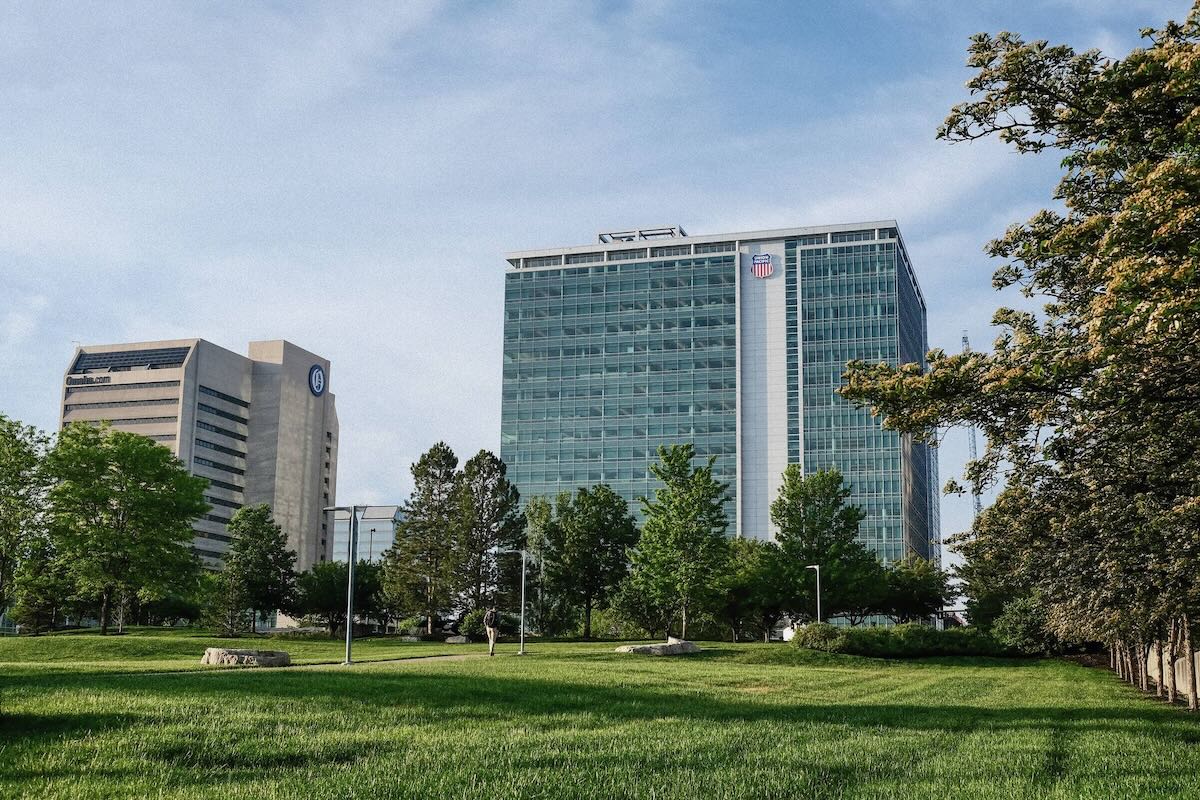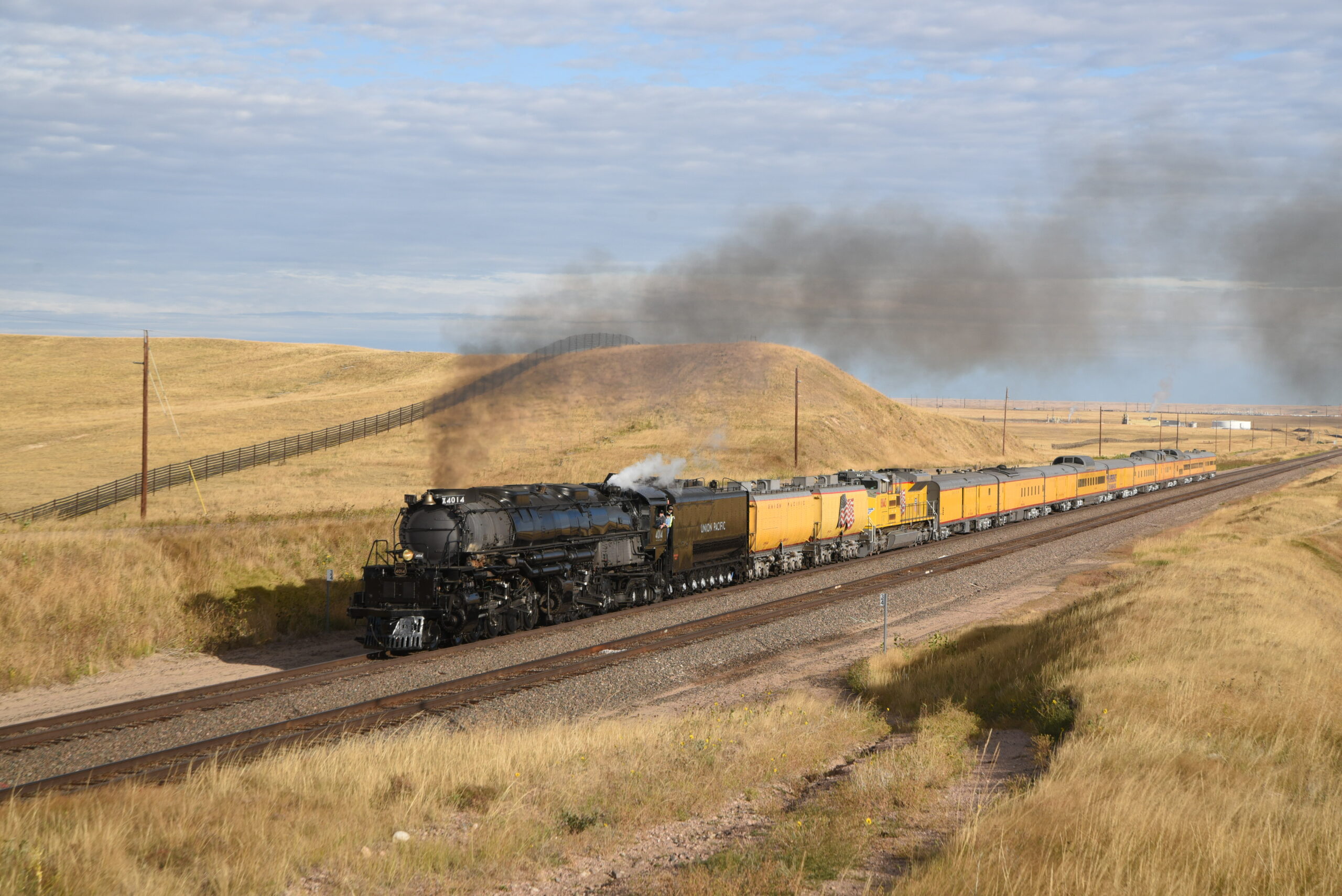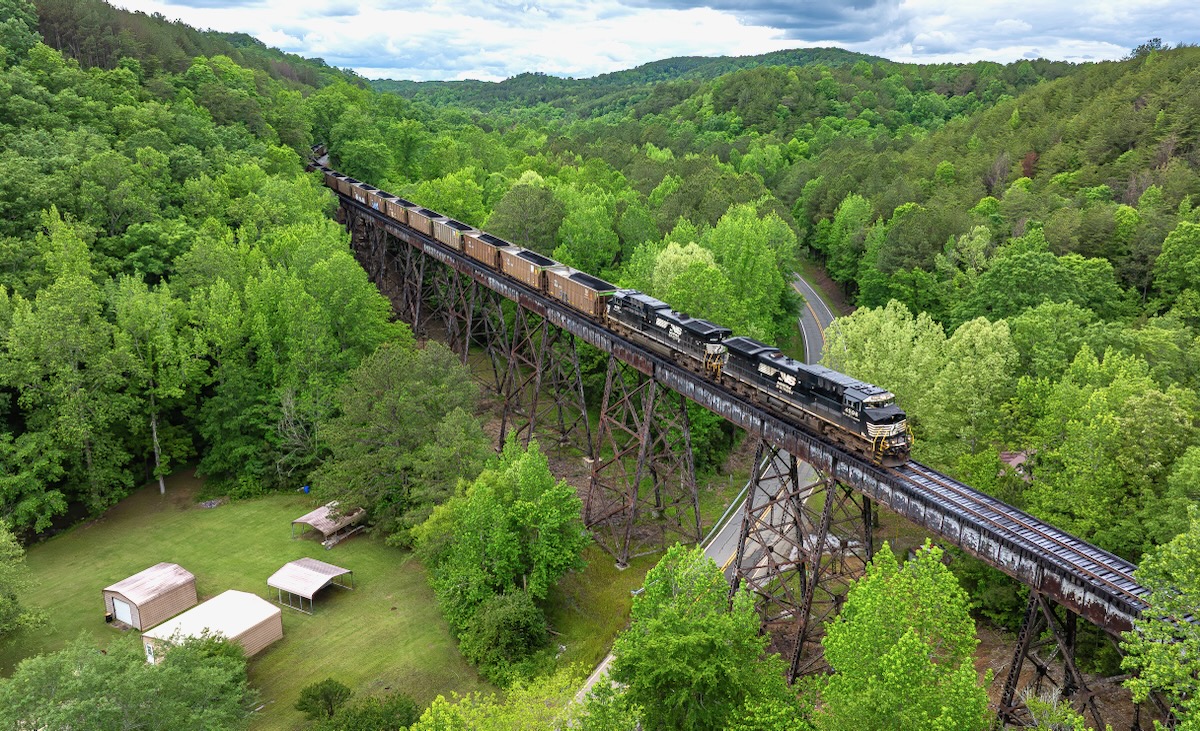
CALGARY, Alberta — Canadian Pacific Kansas City said today that Class I railroad mergers are not necessary and that it isn’t interested in participating in an immediate round of consolidation.
“We believe that a transcontinental merger would trigger permanent restructuring of the industry and result in a disproportionately large railway whose size and scope would require others to take action,” CPKC CEO Keith Creel said in a statement that echoed his remarks on the railway’s earnings call last month. “This will likely result in an unnecessary wave of railway mergers that today is not the best way to support American businesses nor the public interest, and has the potential to create more issues than it solves.”
CPKC’s announcement comes a day after Berkshire Hathaway Chairman Warren Buffett told CNBC that Berkshire, which owns BNSF Railway, will not make a bid for CSX or Norfolk Southern as a competitive response to Union Pacific’s proposed $85 billion acquisition of NS.
Activist investor Ancora Holdings, which has a small stake in CSX, earlier this month urged CSX to engage in merger talks with BNSF and CPKC.
“CPKC does not believe that further rail consolidation is necessary for the industry as currently structured. The company remains focused on delivering more of the benefits and unique value-creating opportunities of its three-nation network, which connects shippers in all parts of North America via effective interline service options,” CPKC said.
Any major rail merger, CPKC says, poses “unprecedented risks to customers, rail employees, and the broader supply chain. Those risks would be exacerbated by the inevitable follow-on consolidation,” the railway says.
The industry should instead focus on interline partnerships, which can provide many of the same benefits of mergers but without the integration risk, CPKC says.
“CPKC continues to pursue these opportunities, such as its recently announced collaboration with CSX on the Southeast Mexico Express service linking the U.S. Southeast to Mexico,” the railway says.
BNSF and CSX last week announced new interline partnerships for domestic and international intermodal service.
Canadian National also has expressed support for additional interline partnerships rather than mergers.
UP and NS on July 29 revealed their plans to merge into the first U.S. transcontinental railroad. The deal, they say, will improve service, boost the American economy, and lead to volume growth. It will be the first Class I railroad combination judged under the Surface Transportation Board’s tougher 2001 merger review rules.














Didn’t Creel recently do and end-to-end merger? Seems to me it’s the same guy.
This is the guy whose trains go from Detroit to Mexico via the back side of the moon and once around Saturn’s rings. God forbid some railroad would want to shorten its routings.
What if UP-NS “chose” CN as its preferred competition enhancer?
Say access to KC on the former Wabash from its crossing with the IC.
Maybe access from Detroit through Fort Wayne, Cincinnati and Lexington to Birmingham and Atlanta and Jacksonville.
Access from Chicago all the way to Philadelphia in the Northeast.
That would make CN a railroad able to provide service to areas of the US where roughly 2/3 of the US population lives.
That may not happen – probably will not happen – but the point is that there may be a way that UP-NS, or even the STB itself, comes up with a way to improve competition that results in UP-NS being approved.
Interesting to watch, undoubtedly.
So BNSF, CN and CPKC are not interested in merging with CSX.
Suck it, Ancora!
Says Creel, whose last major transaction was an acquisition of another railroad.
End-to-end, just like UP+NS.
His reasons for CP acquiring KCS are exactly the same things being said by UP. Single line haul, no interchange, superior service routes.
Of our commenters: did they express the same objections to CP+KCS as they are saying about UP+NS?
Creel speaks with a forked tongue just like most railroad CEO’s do. He no more trustworthy than Vena. If he thinks he is then he’s out to lunch…
Odd that he’s indirectly bashing UP+NS when CPKC is likely to get more trackage rights in Texas if UP+NS goes through. Most likely reasoning is UP+NS cancels any benefit to CPKC’s agreement with CSX on traffic moving between Mexico, Texas and the southeastern states.
Nobody was given the same opportunity. CP-KCS wasn’t mandated under the 2001 merger rules but were allowed under the OLD rules. Why, nobody is quote sure of, unless KCS was somehow considered to be JUST a regional instead of a Class One-A (My definition) as they were certainly big enough to be considered a bigger than regional railroad based on their history and mileage… But Martin Oberman said no and the rest is history…
If no other railroads are interested then I’d say the deal for the up and ns merging will just be a flavor of the week by investors and eventually fade away. But if they do it will just be another debacle that produces no real gains only smoke and mirrors for investment firms to gloat about.
Jim Vena thinks bigger is better and pays no heed to “better for customers”. Just like in Oregon he just wants to reduce switching/crews. Wouldn’t it be funny if the short lines up’ ed their service costs to UP. Any car of freight that has to go from one coast to the other , now or later, still has to travel the same route.
The STB needs to put a halt to this.
I reality using shortlines to service branch lines, and industrial spurs is a good idea and usually beneficial to the shippers.
There’s nothing new about this. I remember SP’s “Adopt a Branch” program in the ’80’s when they wanted to parts with branch lines and short segments of track they no longer wanted. For the most part it worked out very well.
“UP and NS on July 29 revealed their plans to merge into the first U.S. transcontinental railroad. The deal, they say, will improve service, boost the American economy, and lead to volume growth.”
Service will decline as they cut back on switching frequencies, it will boost the amount of capital to buy back stock for the hedge funds, the volume will have a bump initially, but will gradually decline again as the cost cutting and chasing away of customers begins to take hold.
Who is zoomin who here?
And if they should happen to succeed, what would all you naysayers have to say then, that were just lucky? Yes, Vena has a pair of big ones. But there is no guarantee that the STB is even going to allow them to merge, in which case UP and NS will do a pseudo merger just like BNSF and CSX are doing now and then CPkc will again be on the outside looking in, and bitching every chance they get that they are being kept out of the Chemical South when they have no rights there now and no one wants to give them any either, except by force which won’t happen with no merger. Sorry Keith, you just aren’t big enough…
Before going on a rant maybe you should look up what UP and NS customers have already said about the possible UP/NS merger.
Hub Group, one of UP’s largest customers, has already reacted favorably. You have to fully understand why they wouldn’t be against the merger.
Hub Group competes against JB Hunt. They must see something in the merger they like, so what is it?